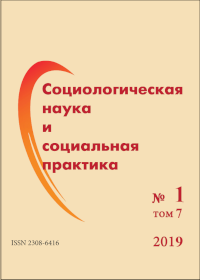Создание искусственного интеллекта: современные достижения и отложенные риски
Аннотация
Литература
Гуманистический поворот: императив человеческой цивилизации / Под ред. С. А. Кравченко. М.: МГИМО-Университет, 2018. 209 с.
Яницкий О. Н. Социобиотехнические системы: новый взгляд на взаимодействие человека и природы // Социологическая наука и социальная практика. 2016. Т. 4. № 3. C. 5–22.
Bauman Z. Social Inequalities in a Global Age. Cambridge: PolityPress, 2011. 149 p.
Cellan-Jones R., Hawking S. Artificial Intelligence could end mankind. [Электронный ресурс] // BBC News. 2014 URL: http://www.bbc.co.uk/news/technology-30290540/ (дата обращения: 22.09.2018).
Mosco V. Becoming Digital. Toward a Post-Internet Society. Bingley: Emerald Publishing Limited, 2017. 227 р.
Vanderburg W. H. Our Battle for the Human Spirit. Toronto: University of Toronto Press, 2016. 421 р.
Yudkowsky E. Artificial Intelligence as a Positive and Negative Factor in Global Risk. In Global Catastrophic Risks. New York: Oxford University Press, 2008. P. 308–345.








 Издатель: Федеральное государственное бюджетное учреждение науки
Издатель: Федеральное государственное бюджетное учреждение науки